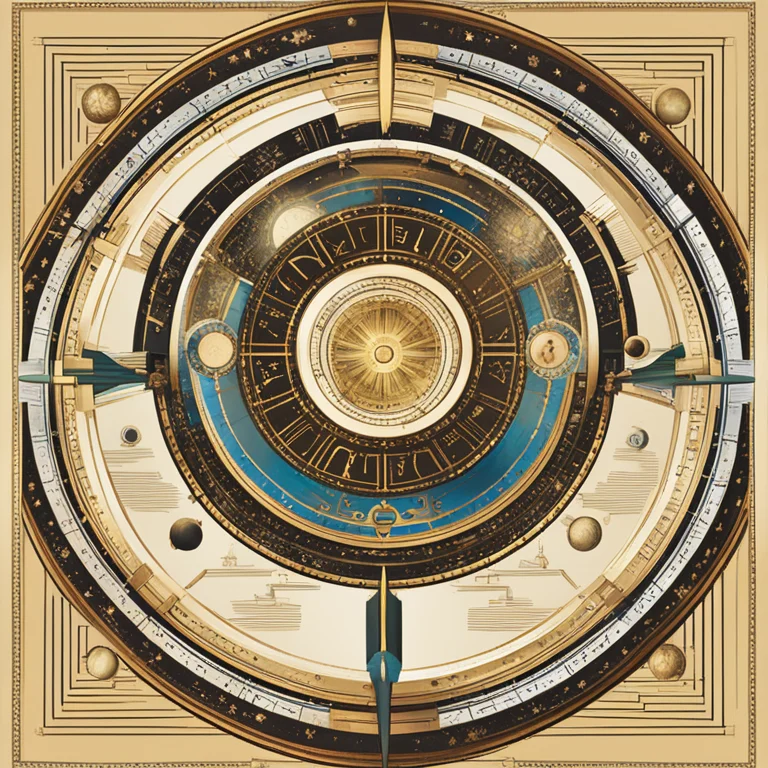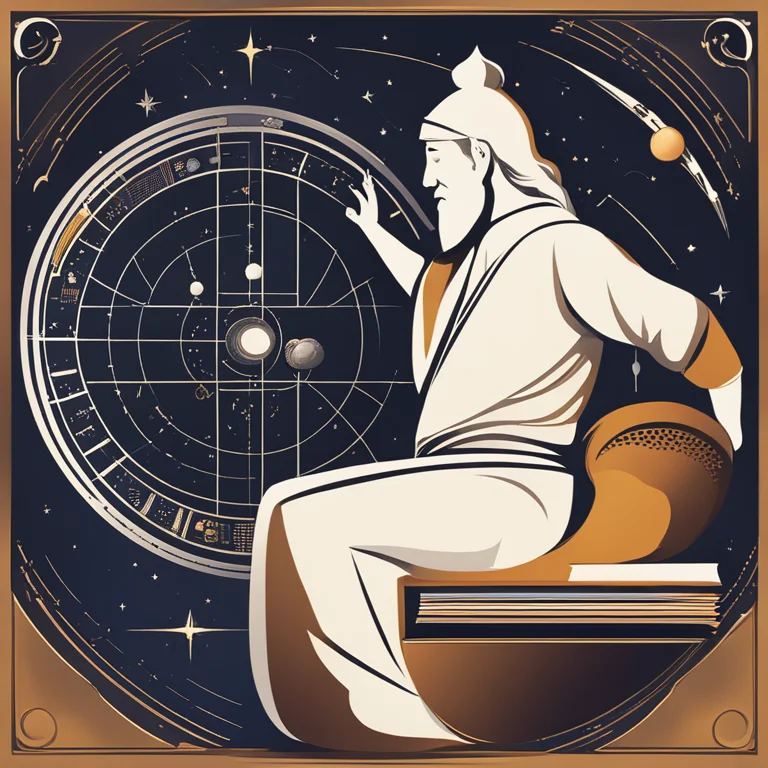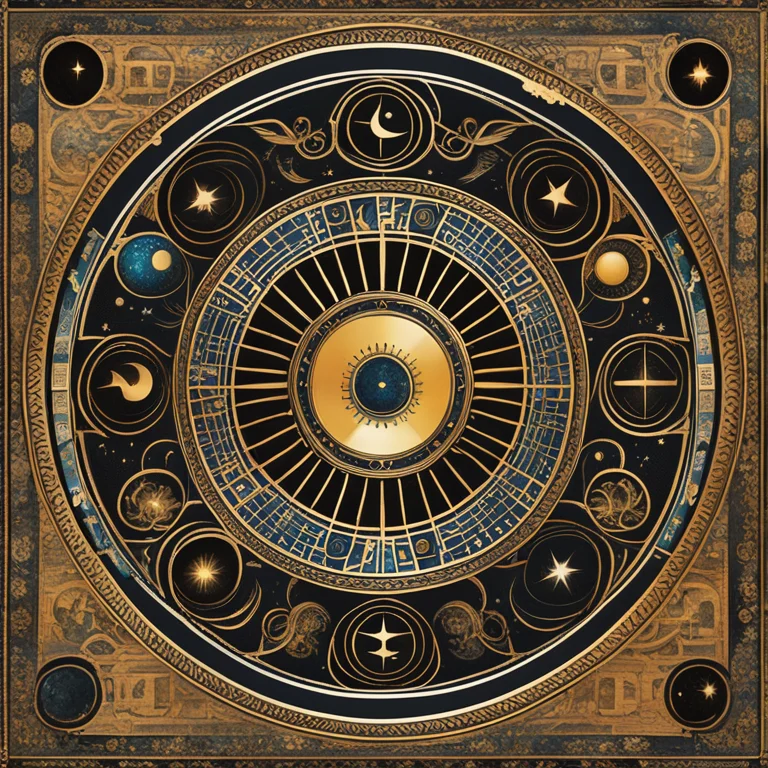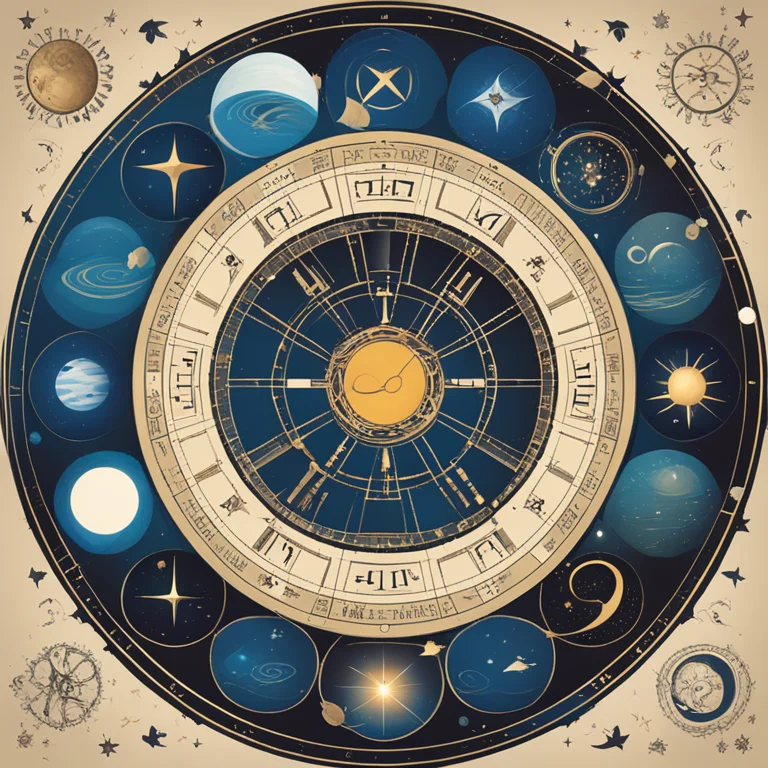
The Zodiac's Historical Tapestry
Delve into the ancient roots of the zodiac and discover how this celestial system has shaped cultures throughout history.
article by Priya Deshmukh
The Ancients and the Sky
The relationship between humanity and the cosmos is as old as civilization itself. The zodiac, a celestial coordinate system of twelve signs, stands as one of humankind's enduring attempts to make sense of the stars. Across various cultures, the patterns observed in the night sky were linked to deities, animals, and myths, creating a rich tapestry of celestial significance. The idea of ascribing meaning to celestial movements can be traced back to the Babylonians in the 5th century BCE, who developed one of the earliest known zodiac systems.

Astrology's Foundations
Astrology, seeking to interpret and predict terrestrial events based on celestial observations, hinges significantly on the zodiac. The Greeks inherited the Babylonian zodiac and integrated it with their own mythological stories, thus shaping the astrological tradition that would influence Rome and the broader Western world. By the 1st century BCE, the zodiac had crystallized into the twelve sign system — familiar to us today — featuring Aries, Taurus, Gemini, and others, each associated with specific traits and governed by particular celestial bodies.

The Roles of Philosophy and Science
The zodiac and astrology at large were bolstered by some of the era's greatest thinkers, such as Ptolemy, whose work "Tetrabiblos" became a foundational text for Western astrology. Despite astrology's subsequent classification as a pseudoscience in the age of empirical rigor, its legacy persists. Today, the zodiac still captivates the imagination, influencing modern personality theories and the mindful contemplation of our place within the universe—a reflection rooted in philosophic traditions as old as the stars themselves.

Modern Astrological Practice
Looking ahead to 2024 and beyond, astrology remains a topic of fascination in popular culture. Personalized horoscopes, tailored to individual birth charts, provide guidance and insight on future events and compatibility. The advent of sophisticated astrology software allows for more precise calculations, fostering a renewed interest in the ancient practice. Astrologers consider the position of planets and sensitive points in the upcoming years, offering advice and predictions that align with long-established zodiacal imagery and symbolism.

Zodiac Across Cultures
The zodiac, while firmly rooted in Hellenistic Babylonian astrology, also finds parallels in Eastern traditions. Chinese, Indian, and Mesoamerican cultures all developed their own forms of astrology, which, while distinct, share the fundamental human effort to connect life on Earth with the movements of celestial bodies. The Chinese zodiac, for example, rotates on a twelve-year cycle with each year corresponding to an animal sign, asserting influence over the life course and character of those born under its tenure.
Zodiac Legacy and Influence
The zodiac's ability to endure and adapt is a testament to its profound impact on human society. Despite the passing of millennia, it remains a source of guidance for many. The zodiac continues to inspire not only in the realm of personal insight but also in the arts, fashion, and culture at large. As we move forwards in time, the zodiac’s symbols and stories will undoubtedly evolve, while still echoing the ancient fascination with the celestial sphere that first mapped the stars to our human experiences.
Published: 1/9/2024
Modified: 1/10/2024
More predictions
Come back here soon to learn more about yourself and your future


Can Astrology Predictions Be Altered?
Explore whether the predictions of astrology have the flexibility to change and if individuals can influence their astrological destinies.


Can Astrology Predict Romantic Futures?
Discover whether astrology has the power to predict love and how the stars might influence your romantic destiny.


The Ancient Origins of Astrology
An insightful journey into the ancient beginnings and origins of astrology as a cultural and astrological practice.